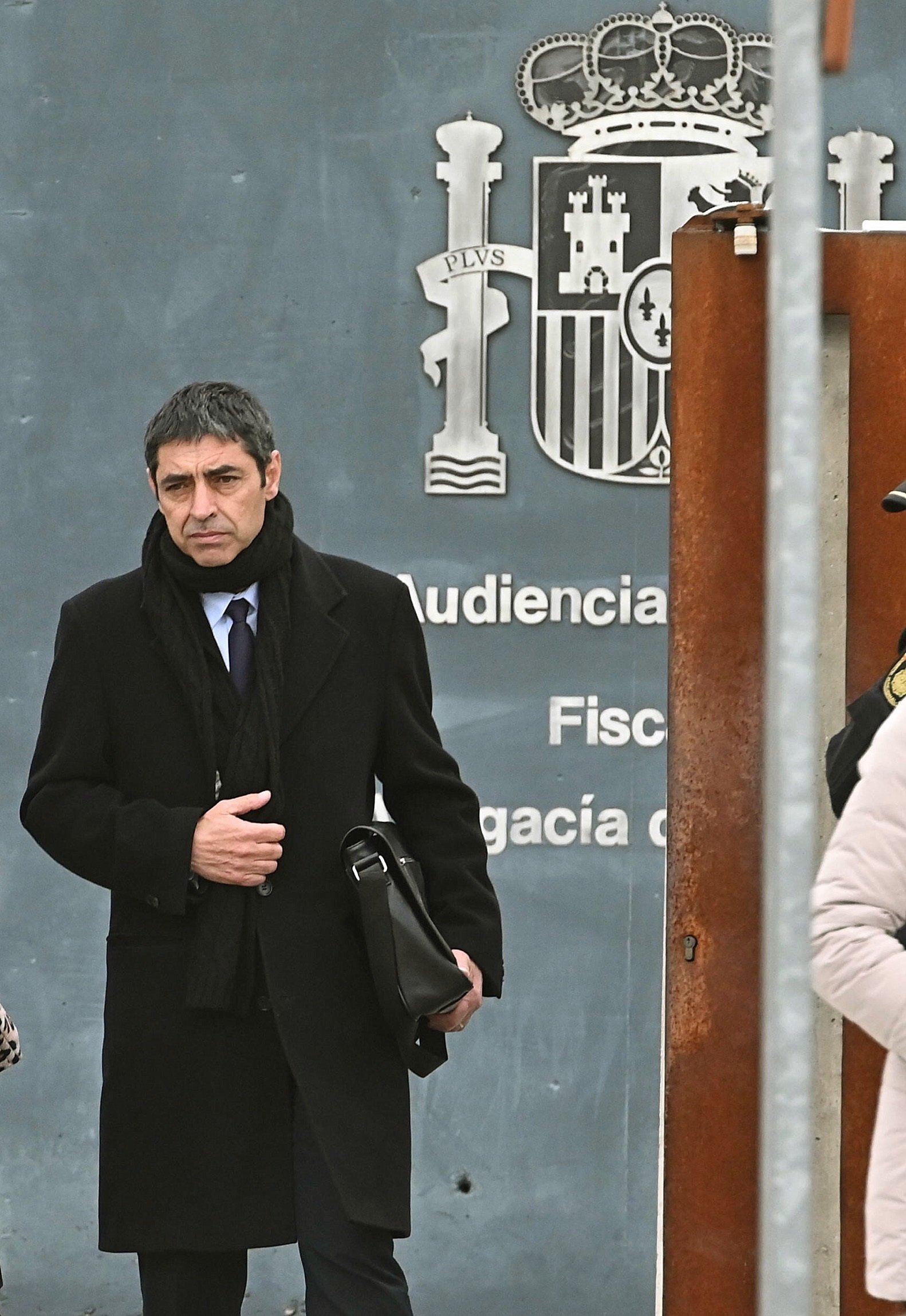Spain's National Audience court has acquitted the chief of Catalonia's Mossos d'Esquadra police, Josep Lluís Trapero of accusations related to the 2017 Catalan independence referendum, according to reports on several major Spanish media, including radio stations SER and RAC1. The court also acquitted police superintendent Teresa Laplana, police director general Pere Soler, and interior ministry secretary general Cèsar Puig. The verdict will be released officially tomorrow Wednesday. In fact, prosecutors have been summoned to court at 9.30am, but a number of Madrid media outlets have already leaked the court’s verdict.
According to these media, the decision to acquit has the support of two of the three judges, Ramón Saez Valcárcel and Francisco Javier Vieira, while the third justice, presiding judge Concepción Espejel, had a dissenting view. It is reported that Espejal stands alone in insisting on the guilt of the Catalan police leadership.
For Trapero and Laplana, the court has ruled out all the hypotheses presented by prosecutors, including the "compromise" option, which put the offence of disobedience on the table, which would not send Trapero to prison while also avoiding a complete absolution.
The trial against Trapero was investigated from the beginning as an offence of rebellion. The public prosecutors, however, changed their position at the end of the trial, asking for the accused to be imprisoned for 10 years for a crime of sedition, although they also opened the door to a conviction for disobedience, without imprisonment, in the event that sedition was not proven. The police chief's defence lawyer has always demanded acquittal arguing that Josep Lluís Trapero, as head of the Mossos, complied fully with the law when acting, both on September 20th, 2017 in a key protest march outside the Catalan department of economy, and on October 1st, 2017, the day of the referendum.
From rebellion to acquittal
The prosecutors have always maintained that days before the referendum, on 20th September 2017, while Civil Guard officers carried out a judicially-ordered search of the Catalan economy ministry, Josep Lluís Trapero and Teresa Laplana "cooperated decisively, consciously and intentionally with the aims pursued by the Catalan institutions" - that is, to hold the referendum - and that they "prevented the development of the judicial search in the conditions required by the legal system".
Despite the testimony to the contrary of the Mossos chief during the trial, the prosecution also maintained that "the conditions imposed by [pro-independence civil leader] Jordi Sànchez on the judicial commission that day were fully assumed by the defendant Josep Lluís Trapero, who in his conscious inactivity, avoided putting an end to the serious problem of public order that was occurring and that prevented the judicial search from taking place normally".
Prosecutors Miguel Ángel Carballo and Pedro Rubira have always said that on the 1st October, the other two defendants, Pere Soler, then director general of the police, and César Puig, secretary general of the interior ministry, as well as Trapero himself, had a "joint strategy" and that "not only did they omit all action to avoid the referendum, but they also contributed decisively to the fact that the Mossos d'Esquadra body was put at the service of the secessionist plan".
The prosecution describes as "mere formalities" the 4,469 actions taken by the Mossos police in the two days preceding the referendum to declare the illegality of the vote at the locations to be used as referendum polling stations, because they did not the seal off premises or make any warnings to the people who were already occupying them.

